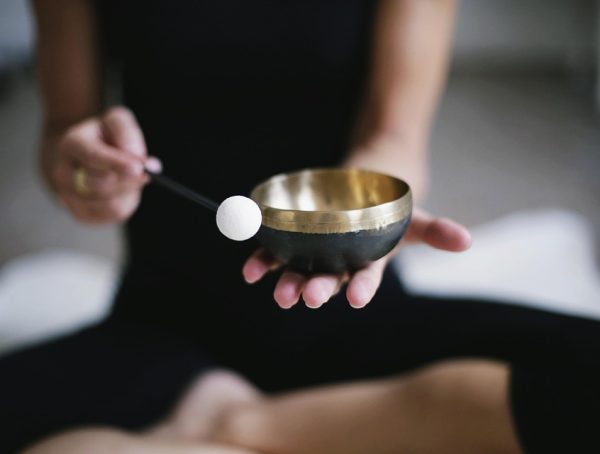20 Ways Meditation Can Transform Your Mental Health
In today’s fast-paced world, mental health has never been more critical. Stress, anxiety, and depression are common issues that many of us face daily. As the importance of self-care shines brighter than ever, meditation has emerged as a powerful tool for mental well-being. Through various techniques, meditation can transform your mental health by fostering resilience, peace, and profound self-awareness. Here are 20 ways meditation can make a significant impact on your mental health, along with actionable steps to incorporate into your daily routine.
1. Reduces Stress
Meditation is an effective stress-reducer. By focusing on breath and mindfulness, you can reduce cortisol levels, the hormone responsible for stress.
Action Step: Set aside just five minutes a day to practice deep breathing. Inhale for a count of four, hold for four, and exhale for six.
2. Enhances Self-Awareness
Meditation fosters self-reflection, leading to a deeper understanding of yourself, your thoughts, and your emotions.
Action Step: Journal your thoughts after a short meditation session. Note any insights about yourself or patterns that arise.
3. Promotes Emotional Health
Consistent meditation practice can lead to a decrease in symptoms of anxiety and depression by fostering a more positive outlook.
Action Step: Try a loving-kindness meditation where you focus on sending love and goodwill to yourself and others.
4. Improves Concentration
Meditation enhances your ability to concentrate and focus, which can be beneficial in both personal and professional settings.
Action Step: Practice a guided meditation focusing on a single object or thought for 10 minutes daily.
5. Increases Mindfulness
Meditation cultivates mindfulness, allowing you to become more present in each moment without judgment.
Action Step: Throughout your day, take “mindful moments.” Pause and notice your surroundings, the sounds, and sensations around you.
6. Boosts Creativity
The meditative state can lead to improved creativity and problem-solving abilities.
Action Step: Allocate time for a creative meditation where you visualize solutions to a challenge you’re facing.
7. Enhances Relationships
As meditation fosters empathy and compassion, it can enhance your relationships by improving communication and reducing conflict.
Action Step: Include a partner or friend in a meditation session, focusing on mutual feelings and support.
8. Promotes Better Sleep
Regular meditation can improve sleep patterns by calming the mind and promoting relaxation.
Action Step: Wind down before bed with a guided sleep meditation or body scan technique.
9. Reduces Blood Pressure
Meditation can help lower heart rate and blood pressure, contributing to overall physical and mental health.
Action Step: Combine meditation with gentle yoga or stretching exercises to relax your body as well as your mind.
10. Increases Resilience
Meditation helps to develop resilience in the face of adversity by teaching you how to manage emotional responses.
Action Step: Practice visualization techniques where you imagine yourself successfully overcoming challenges.
11. Enhances Focus and Attention Span
More significant mental clarity can be achieved through meditation, allowing you to manage your attention more effectively.
Action Step: Use apps like Headspace or Calm for daily focus-enhancing meditation sessions.
12. Alleviates Symptoms of Anxiety
Research has shown that mindfulness meditation can significantly decrease anxiety and panic attacks.
Action Step: Practice mindfulness meditation for anxiety. Focus on the present moment without judgment, acknowledging your thoughts without engaging with them.
13. Encourages Self-Compassion
Meditation teaches you to treat yourself with kindness, reducing self-criticism and increasing self-worth.
Action Step: Incorporate an affirmation practice into your meditation routine, repeating positive statements about yourself.
14. Raises Overall Happiness
Many studies link meditation with increased levels of happiness and life satisfaction.
Action Step: After each meditation session, take a moment to express gratitude for three positive aspects of your life.
15. Fosters Acceptance
Meditation can help you cultivate acceptance of things beyond your control, leading to a more peaceful existence.
Action Step: Practice acceptance meditation where you focus on letting go of things you cannot change.
16. Balances Emotions
Meditation teaches emotional regulation, enhancing your ability to manage feelings effectively rather than being overwhelmed by them.
Action Step: Use emotion-focused meditation to address specific feelings like anger or sadness, allowing yourself to explore these emotions non-judgmentally.
17. Strengthens the Mind-Body Connection
Meditation enhances the connection between your mind and body, promoting a holistic approach to mental health.
Action Step: Engage in mindful movement, such as tai chi or walking meditation, to strengthen this connection.
18. Teaches Patience
The process of meditation often reveals how challenging it can be to quiet the mind, teaching patience and perseverance.
Action Step: Practice a meditation that focuses on patience—allowing thoughts to arise and fade without frustration.
19. Increases Tolerance for Pain
Meditation has been shown to reduce perceptions of pain, improving your ability to manage discomfort.
Action Step: Try guided meditations designed for pain management, focusing on breath and visualizing pain dissipating.
20. Boosts Overall Well-Being
The cumulative effects of meditation contribute to a holistic sense of well-being, enhancing your physical and mental health.
Action Step: Set a weekly meditation goal, gradually increasing your time spent meditating, and celebrate your journey toward greater well-being.
Conclusion
Meditation is an incredibly versatile tool that can lead to significant improvements in your mental health. By incorporating these practices into your daily life, you can harness the power of meditation to foster a healthier, more balanced mindset. Remember, consistency is key. Start small, and over time, you’ll notice profound changes within yourself.
As you embark on this transformative journey, keep in mind that "The greatest weapon against stress is our ability to choose one thought over another." – William James.
For more insights and daily motivation, follow Kevin on Instagram @KSteineman! Let’s embark on this journey toward mental wellness together!
You might also like
More from Meditation
The Role of Mantras in Transcendental Meditation: A Deep Dive
The Role of Mantras in Transcendental Meditation: A Deep Dive Transcendental Meditation (TM) has garnered a significant following across the globe, …
The Science Behind Meditation: Improving Mental Health Naturally
The Science Behind Meditation: Improving Mental Health Naturally In today's fast-paced world, the pursuit of mental wellness has become paramount. Thousands …
Understanding the 7 Types of Meditation for Beginners
Understanding the 7 Types of Meditation for Beginners: A Path to Inner Peace Meditation has become a popular practice in recent …


































